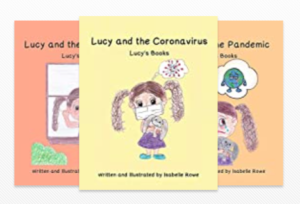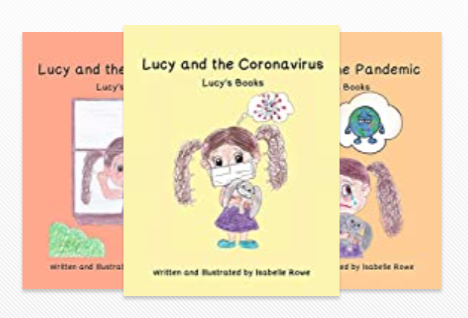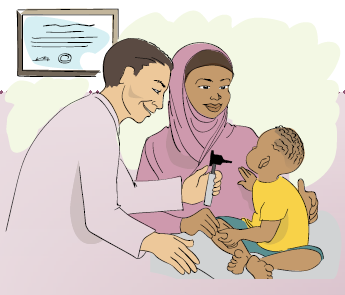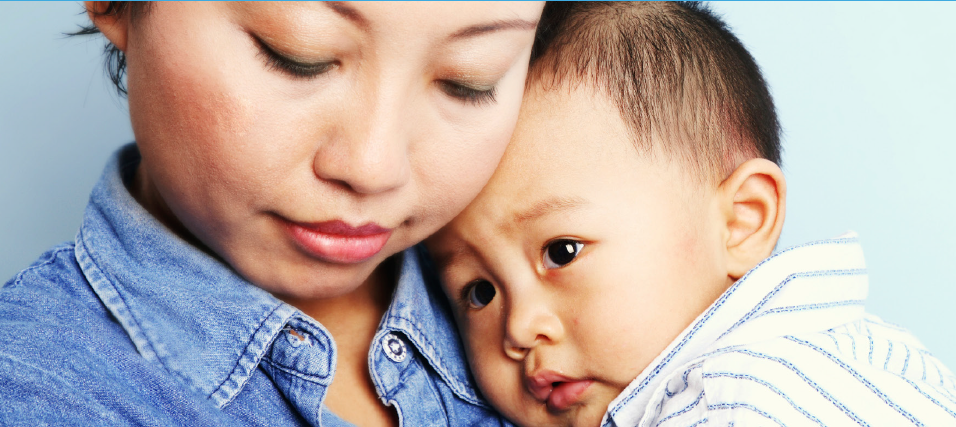COVID-19: Lucy’s Books Series Helps Families and Educators Talk About Feelings with Children
 Note from Isabelle Rowe, LCSW-C: “Children need to talk about their feelings. I believe that mental health and early childhood education should go hand-in-hand. I have worked with young children in and out of the classroom for over a decade. I am a licensed clinical social worker and the assistant director of a therapeutic preschool) in Maryland that specializes in the education of young children who have social and emotional difficulties, including trauma. To help children, parents, families, teachers, providers, and other caregivers during this global pandemic, I have written a children’s book series to help them navigate our new lifestyle.”
Note from Isabelle Rowe, LCSW-C: “Children need to talk about their feelings. I believe that mental health and early childhood education should go hand-in-hand. I have worked with young children in and out of the classroom for over a decade. I am a licensed clinical social worker and the assistant director of a therapeutic preschool) in Maryland that specializes in the education of young children who have social and emotional difficulties, including trauma. To help children, parents, families, teachers, providers, and other caregivers during this global pandemic, I have written a children’s book series to help them navigate our new lifestyle.”
COVID-19 has lasted longer than any of us could have imagined. We were unprepared for the colossal impact it has had on our physical and mental health. This pandemic may be impacting children on every tier of Maslow’s hierarchy of needs.
Are children getting their physiological needs met? Do they feel safe? How are they socializing? This pandemic can impact children’s self-esteem and self-actualization.
It has changed how we live our daily lives and interact with one another. Emotional and physical closeness is above all the one need every human being has, but now the message is that close human contact can be dangerous to our health and others’ health. Children are told that they can make their grandparents, other relatives and friends sick, or that they can get sick themselves from the people they care about deeply. And not just sick, but COVID-19 can be lethal to those who get it.
There is no doubt that this pandemic is affecting children’s social development on the social tier of the hierarchy of needs pyramid. Our entire lives seem to have moved online: children and their families now have birthday parties, holidays, play dates, and school via a computer screen. How is this impacting children’s overall development? Another important question is, how do their behaviors look during this new way of connecting? Are they showing signs of distress, such as returning to old behaviors they used to have (this is called regression)? Are they bedwetting, or do they appear more irritable, more aggressive, or withdrawn than usual?
USA Today recently published an article that included data from the Rapid Assessment of Pandemic Impact on Development Early Childhood Household Survey Project (RAPID-EC Project). Through the RAPID-EC Project, researchers found:
- 68% of caregivers of young children report a significant increase in stress from before the pandemic.
- 63% of caregivers say they have lost emotional support.
- 20% of households are experiencing material hardship.
- As of the last week of July, 78% of caregivers said their child was exhibiting behavior problems.
It is important to notice these behavioral signs and talk to young children about all the possible difficult feelings underneath. It is a stressful time for adults and equally stressful for children. Children pick up on adult stress and may not fully understand it. They fill in the blank of what they do not understand with ideas that may not be accurate, creating more stress and worry.
There are many resources available for families. One wonderful resource is the Sesame Street Town Hall. A partnership with CNN, characters answer children’s questions about the pandemic during the show. Families should try to answer openly and honestly any questions children have about the pandemic. Parents do not need to tell their children everything but provide them with enough appropriate information based on their developmental age. If it feels like too much to handle, experts recommend seeking a mental health professional. Another option for families is to use stories to explain COVID-19 to their children.
 The Lucy’s Books Book Series can help both families and educators find the words and use images to talk about the changes and stressors this pandemic has brought. The series includes five published books in paperback and E-book.
The Lucy’s Books Book Series can help both families and educators find the words and use images to talk about the changes and stressors this pandemic has brought. The series includes five published books in paperback and E-book.
The first two are available in Spanish and French. The series can help empower families to answer complex questions and respond to their children’s feelings about COVID-19. In the books, Lucy asks her parents many questions about COVID-19 and has many confusing feelings.
These books are written in a child-friendly way that includes fun pictures while focusing on facts that children can understand. They also offer helpful suggestions for activities that can teach children how to cope with anxiety, anger and fear. For teachers and providers doing virtual readings, the Lucy’s books series are perfect to help explain to children why online learning is necessary. All the books include tips for parents and caregivers, including:
- Lucy and the Coronavirus answers questions children might have about this Coronavirus and how to stay safe.
- Lucy and the Pandemic focuses on answering questions about the pandemic and the feelings it elicits.
- Lucy and the Quarantine explains what social distancing is and what it may look like to have to quarantine a sick family member and the entire family. It addresses feelings of fear and being tired of being home.
- Lucy and the Stay-at-Home Summer explores how this summer is different from most summers. It also explores more complex feelings and regressed behaviors children might have.
- Lucy’s Virtual School centers around starting a new school and school year virtually, as well as play-dates, birthdays being virtual.
Families and educators let’s continue to talk about the hard stuff together! More books in the series will be published, and I will host live readings on my website.
Wishing you safety and good health!




